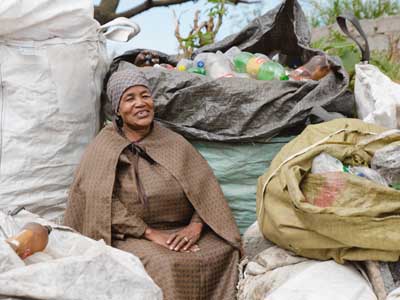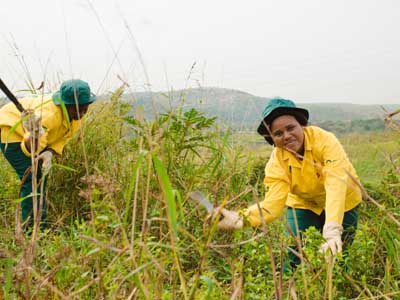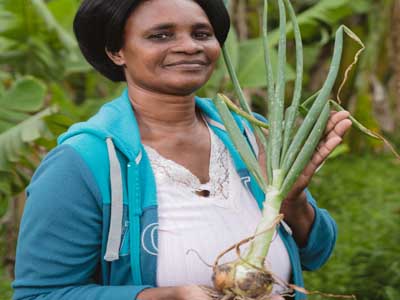Over 18 000 trees were planted during Arbour Week with the support of The Foschini Group (TFG) and Woolworths, kicking off the annual tree planting programme of the environmental NGO the Wildlands Conservation Trust.
Wildlands Indigenous Trees for Life Programme runs in 24 communities across the country, where indigenous trees are grown and exchanged for goods by adults and children in poor and vulnerable communities. Known as “tree-preneurs”, they trade the trees back to Wildlands once they reach a certain height, exchanging the trees for goods at Green Futures Stores, the market place set up by Wildlands for the purchase of food, clothes, building materials, water tanks, bicycles, amongst other items.
The trees are then planted back into the communities or into reforestation projects run by Wildlands. This year’s Arbour week planting took place within two of the KwaZulu-Natal projects of Indigenous Trees for Life, in the the Mzimela community which borders the Ngoye Forest near Mtunzini, and in the Zwenelisha community which borders the iSimangaliso Wetland Park near St Lucia. Tree-preneurs from the projects were contracted to do the planting.
Charmaine Veldman, Programme Manager for Indigenous Trees for Life, said that Arbour Week was a good launch pad for their annual programme of tree planting, with this year’s goal being to plant 500 000 trees across the country. “Companies like Foschini and Woolworths share in our vision of creating a sustainable future for all, and with their support we are able to set ambitious goals such as this for our tree planting for the year,” she said.
TFG supported the purchase and planting of 15 000 trees, each tree representing a TFG staff member, and they ran an in-house campaign to create awareness of environmental issues amongst their staff.
Karde Buys of the TFG said: “This year our aim was to off-set some of the carbon we produced as a business as well as to encourage our 15 000+ employees to take action to reduce their own carbon footprints. In addition, we have helped create additional short term employment for the tree-preneurs who will be planting and caring for these trees – this is great!”
Due South stores, the modern high-tech outdoor brand, also part of TFG, ran a further awareness campaign for their customers, giving away trees to 600 customers across their three flagship stores during Arbour week.
Woolworths supported the planting of 3000 trees. Justin Smith, Good business journey Manager at Woolworths said: “Woolworths is proud to work with Wildlands as their model brings community development and environmental issues together in a uniquely successful way. Woolworths is equally passionate about both of these aspects, as part of its Good business journey programme.”
Picture: Over 18 000 trees were planted by “tree-preneurs” during Arbour Week, kicking off the Wildlands Conservation Trust’s commitment to planting 500 000 in the next year.
Picture credit: Wildlands Conservation Trust







